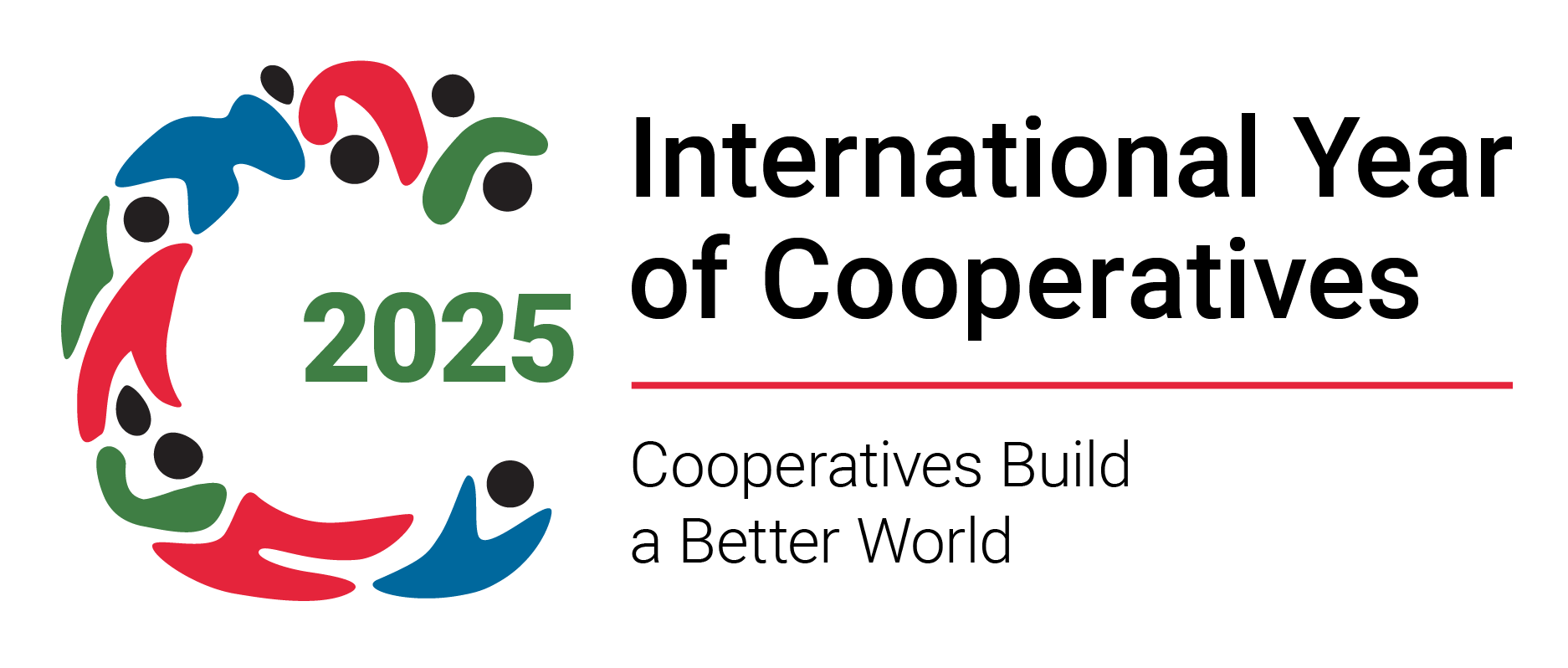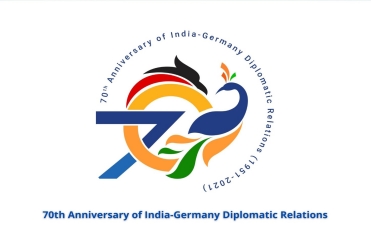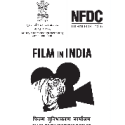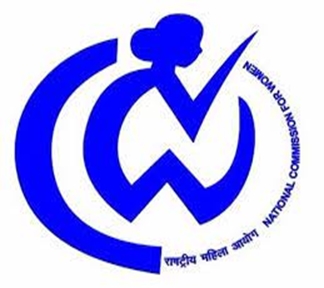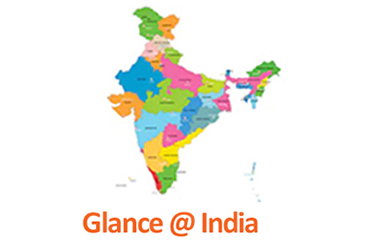- Home
- About Us
-
Consular Services
- Launch of e-Clearance for Afterlife Remains (eCARe) portal
- Instructions regarding entry into the consular Wing
- Reissue of International Driving Permit (IDP)
- Postal Applications
- Visa Services
- Passport Services
- OCI Information
- Renunciation of Indian Citizenship/Surrender Certificate
- Attestation,Consular and Misc.Services
- Weekly Open House
- MADAD - Consular Services Management System
- Indian Community Welfare Fund
- FAQs on Marital disputes involving NRI/PIO spouses

- Public Notices & Circulars
-
Embassy Wings
- Economic & Commercial Wing
- Contacts
- GI Digital Catalogue

- Overview of Indian Economy
- India-Germany Economic & Commercial Relations
- Doing Business in India
- Make in India

- Invest India

- Flagship Programs of Government of India

- Doing Business in Germany
- Trade Fairs
- Trade Dispute Advisory
- Foreign Investment
- Foreign Trade
- Newsletters

- Attestation of Documents

- Community Welfare
- Culture
- Information Wing/Media Center
- Science & Technology

- Political
- Consular
- Defence Wing
- Economic & Commercial Wing
- Media Center
- India-Germany Relations
- MIIM
- Useful Links
- Tenders
India-Germany Joint Statement during the visit of Prime Minister to Germany
May 30, 2017
Today, the fourth Inter-Governmental Consultations [IGC] between India and Germany were held in Berlin. The Prime Minister of India Shri Narendra Modi and the German Federal Chancellor Dr. Angela Merkel agreed to further strengthen the Strategic Partnership between India and Germany by deepening cooperation on foreign policy and security issues as well as on sustainable development and enhanced trade and investment ties.
Prime Minister Modi and Chancellor Merkel welcomed the successful implementation of the ambitious bilateral agenda that was agreed during the last round of Inter-governmental Consultations held in New Delhi in 2015. They reiterated that the Indo-German Strategic Partnership is based on common values of democracy, free trade and a rule-based international order and that it has strengthened the bilateral relations by further enhancing trust and mutual respect.
Promoting Security, Stability, and Sustainability contributing to a Rules Based Global Order
As strategic partners, India and Germany are committed to close coordination, bilaterally and with partners, in the G20, the United Nations and other multilateral fora, to address existing and emerging challenges to international security, global economic stability and growth.
India and Germany emphasized their commitment to a stable, united, prosperous, pluralistic and peaceful Afghanistan. They supported a comprehensive and inclusive Afghan-led and Afghan-owned peace and reconciliation process that leads to the renunciation of violence and breaking of all ties to international terrorism and the respect for the Afghan Constitution including its human rights provisions. They underlined that the Heart of Asia-Istanbul process remains an important format for regional confidence building and regional political cooperation.
Both Leaders expressed their commitment to strengthen global non-proliferation efforts. Germany welcomed India's accession to the Missile Technology Control Regime. Germany also welcomed India’s intensified engagement with the other export control regimes - the Nuclear Suppliers Group (NSG), Australia Group and the Wassenaar Arrangement - and expressed its support for India's early accession to these regimes.
Both leaders reaffirmed the urgent need for a comprehensive reform of the UN Security Council, including its expansion in both permanent and non-permanent categories of membership, to make it more effective, efficient and responsive to the existing challenges to international peace and security and representative of the contemporary geo-political realities.
The two Leaders commended the steadfast efforts of the G-4 and other reform oriented countries and groups in moving forward the discussions towards initiation of text-based negotiations on the Security Council reform agenda at the ongoing Inter-governmental Negotiations (IGN) at the UN.
Both countries reiterated their full support to each other’s candidatures for a permanent seat in a reformed and expanded UN Security Council.
Both sides underlined the importance of freedom of navigation in international waters, the right of passage and other maritime rights and obligations in accordance with the UN Convention on the Law of the Sea and other principles of international law. Both Leaders attached particular importance to security, stability, connectivity and sustainable development of the blue economy in the Indian Ocean Region.
They concurred on fostering security cooperation with the goal of promoting peace and strengthening stability and the capacity to meet the global and regional security challenges. Both countries agreed to pursue closer cooperation and strive to conclude negotiations in 2017 on a binding agreement concerning enhanced cooperation in the defence field including in defence industry cooperation.
Prime Minister Modi and Federal Chancellor Merkel underlined their common concern about the threat and global reach of terrorism and extremism. They condemned terrorist violence in all its forms and manifestations. They agreed on the need to take strong measures against all those who encourage, support and finance terrorism, provide sanctuary and safe havens that sustain and support terrorist groups and organizations. They welcomed closer collaboration between India and Germany to counter these challenges through regular meetings of the Joint Working Group on Counter Terrorism. They called for finalization and adoption of Comprehensive Convention on International Terrorism.
Both Leaders welcomed the cooperation in disaster management under the work plan agreed in the Joint Declaration of Intent signed between the two countries for cooperation on investing in creation of knowledge, expertise and information exchange.
They welcomed the regular holding of annual German-Indian Cyber consultations since 2015, geared towards cooperation to strengthen the bilateral cyber relationship as laid out in the Joint Declaration of Intent on German-Indian Cooperation on Cyber Policy. Both sides looked forward to a successful conclusion of the work of the UN Group of Governmental Experts in the Field of Information and Telecommunications in the Context of International Security.
Both leaders reiterated their commitment to promote shared values such as respect for human rights and fundamental freedoms, democratic governance, equality, the rule of law, and multilateral cooperation.
Both Leaders welcomed the intensified exchange of views on issues of common concern between their Foreign Ministries through various dialogue formats, particularly Foreign policy consultations, Asian policy consultations, African policy consultations, and Policy planning dialogue. They also welcomed the newly established collaboration between the Foreign Service Institute of India and the Foreign Service Academy of Germany, with a visit of young German diplomats to New Delhi in March 2017 and signing of a Declaration of Intent on further cooperation.
The two sides expressed their interest in exploring the possibilities to cooperate in their assistance to African Countries. The Leaders called for a process by which concrete synergies in areas such as capacity building, vocational training, connectivity and renewable energy will be set up. They encouraged their respective businesses to explore collaborative activities to promote trade and development in Africa.
Prime Minister Modi and Federal Chancellor Merkel reiterated their commitment to the ambitious implementation of the Sustainable Development Goals laid out in the 2030 Agenda for Sustainable Development, both domestically and through international cooperation, as well as the implementation of the Paris Agreement with a timely transformation to low-carbon inclusive sustainable economies. Germany welcomed India’s early ratification of the Paris Agreement, allowing the agreement to enter into force in November 2016.
Both Leaders stressed the important role of the G20 in fostering strong, sustainable, balanced and inclusive growth, private investments, free and rules-based trade and financial markets regulation. In the context of the German G20 Presidency’s theme "Shaping an Interconnected World”, Prime Minister Modi welcomed the Presidency’s focus on building resilience, improving sustainability and assuming responsibility, as well as on enhancing the benefits of globalization and sharing them more widely at national and international levels. Both Leaders looked forward to the G20 Summit under the chairmanship of Federal Chancellor Merkel in Hamburg in July this year.
Economic Opportunities and Skills as Enabling Factor for Sustained Growth
Prime Minister Modi and Federal Chancellor Merkel underlined their determination to ease bilateral trade and investment. They pointed to the potential of open markets and the importance of investment protection for foreign investors for deepening trade relations and for attracting investments to the mutual benefit of both countries. In this context, both Leaders underlined their commitment to India’s strategic partnership with the EU and their interest in developing it further. They also reaffirmed their strong commitment to the EU-India Broad Based Trade and Investment Agreement and their commitment to bring about a resumption of the negotiations at the earliest possible date. This would, inter alia, allow to establish provisions for the mutual protection of new foreign investments.
Recognizing Germany's key competencies in high technology and India's growing needs, both the Leaders welcomed the efforts of the High Technology Partnership Group (HTPG) to identify specific opportunities for high technology collaboration, including in priority areas of skills development in manufacturing under the "Make in India” program and to enhance cooperation in defence manufacturing and machine tools as well as enhancing cooperation in maritime technology and the development of blue economy. They also agreed to explore possibilities of cooperation in the field of industry 4.0 particularly between the Industry platforms on both sides, and they welcomed efforts to deepen relations between the Indian and German space agencies.
They agreed that policies such as the 'Make in India' initiative offer investment opportunities for German companies. Both the Leaders welcomed the full implementation of the Fast Track System for German companies, as agreed during the last consultations, in the Department of Industrial Policy & Promotion (DIPP), Ministry of Commerce & Industry. The Fast Track System has been enabling both sides to identify and solve problems faced by German Companies and investors in their operations in India. Apart from this, the Fast Track System also serves as a platform for discussing general suggestions from the point of view of German companies and Investors with regard to ease of doing business in India.
Recognizing the importance of Vocational Education and Training (VET) towards making transformational impact in creating sustainable livelihood opportunities for the youth and building efficient pool of skilled human resource, both Leaders agreed to further strengthen collaboration between India and Germany in this area. Both leaders acknowledged the global need to bridge the gap between the demand and shortage of skilled work force.
Both Leaders expressed satisfaction at the close cooperation in the area of skill development and agreed to support the on-going activities within the agenda decided by the Joint Working Group on VET. They also agreed to hold the next meeting of Joint Working Group on VET in Germany before the end of 2017.
Germany welcomes India’s massive effort to enhance its skill development landscape by engaging the industry into the provision and implementation of VET. Both countries acknowledged the well-established dual VET system in Germany, which includes the interests of the industry on all levels and creates skilled personnel that meets the demands of the labour market.
The Leaders agreed that cooperation should be jointly explored for the establishment of India’s National Institute of Skill Development (NISD), of an Indian Institute of Skills (IIS) e.g. through linking it with possible German partners as well as of India International Skill Centers to be established in the country for providing pre-departure orientation.
Both sides welcomed the signing of the Joint Declaration of Intent on cooperation in the field of Vocational Education and skill development for the Machine Tools Sector and of the Joint Declaration of Intent on the advancement of dual VET and collaboration on Training of VET Cluster Managers and Indian Skill Development Officers.
The Leaders also welcomed the "Alliance on Dual VET” (Vocational Education and Training) founded by Indian industrialists and leaders of major Indian companies, aspiring to ensure India’s industries’ proactive participation in strengthening skills and employability of young people.
In the same way, both welcomed the envisaged technical cooperation programme for training and skill development for solar technologies.
In the field of transport, both Leaders believe that India's railway modernization and expansion plans offer ample opportunities for the German rail industry. They appreciated the significant progress made on strengthening the cooperation in rail sector especially the initiatives in the area of railway safety.
In pursuance of the emphasis on manufacturing and skill development by the Government of India, they encouraged their respective business enterprises to enter into arrangements for co-development and co-production of commercial aviation and defence equipment in India, including transfer of know-how and technologies.
Both sides welcomed the entering into force of the German-Indian social security agreement on 1 May 2017. This wide encompassing Agreement includes Totalisation and Exportability of benefits and ensures and coordinates the social protection of nationals of both countries in the area of social security and payment of pensions even in the case of residence in the other contracting state.
Hand in Hand for Sustainable Livelihoods and Clean Environment
India and Germany share a long standing, trustful and successful development cooperation. The Leaders agreed to continue cooperation towards the common aim of developing climate-friendly, efficient and sustainable solutions for India's expanding energy needs and other areas of sustainable development. Prime Minister Modi expressed appreciation for Germany's assistance in developmental projects over the years.
The two leaders welcomed the outcome of the Annual Negotiations on development cooperation held in October 2016, as well as the new envisaged commitments in bilateral development cooperation for 2017, each comprising an amount of 1 billion Euros.
Both leaders expressed great appreciation for the successful cooperation on fostering renewable energies in India. They highlighted the successful Indo-German Solar Partnership founded in 2015 and the cooperation on Green Energy Corridors established in 2013.
Building on existing formats of cooperation, the Leaders reiterated their support to the Indo-German Climate and Renewables Alliance as an overarching alliance between India and Germany with the objective to give recognition to ongoing collaboration of various stakeholders on energy and climate change as well as to enhance cooperation and synergies in these fields.
The Leaders underlined the importance of the Indo-German Energy Forum (IGEF) in contributing to the further development of the Indian energy sector. They envisaged to hold the next meeting of the Indo-German Energy Forum in the second half of 2017 in India. Prime Minister Modi and Chancellor Merkel reaffirmed the importance of the Indo-German Environment Forum (IGEnvF) in contributing to further cooperation on environmental issues, including biodiversity and climate change. They agreed to hold the next meeting of the Indo-German Environmental Forum in 2017 in New Delhi.
Both sides expressed their commitment to work towards the goals expressed in the New Urban Agenda, agreed at the Habitat III conference in 2016. The Indo-German cooperation on urban development will help to facilitate their implementation. Sustainable urban development was agreed as a new priority area of bilateral cooperation between India and Germany in 2016. Until 2022 Germany intends to provide financial and technical assistance in the range of 1 billion Euros. The Joint Working Group on Sustainable Urban Development identified Kochi, Coimbatore and Bhubaneshwar for bilateral collaboration. Underpinning this cooperation, both sides encouraged to cooperate in the field of spatial and urban monitoring and evaluation systems. They underlined opportunities for German companies in the sector of sustainable urban development opened by India's initiative on 100 Smart Cities.
The two Leaders welcomed the meetings of the Working Groups for collaboration in Water Management, Waste Management / Circular Economy, and Climate Change held in 2016 and took note of the scheduled meetings for 2017 including the meeting of the proposed Working Group on Biodiversity. They welcomed the ongoing Indo-German cooperation on resource efficiency and called for continuation of joint initiatives in this field. Both Leaders noted the proposed establishment of the G20 Resource Efficiency Partnership. They highlighted the successfully operating Indian Resource Panel (InRP), making India one of the first emerging economies having in place a national advisory body on resource efficiency.
The Leaders acknowledged, in particular with regard to the G20, the ongoing important work and activities at different levels to fight marine litter and to counteract its impacts. They stressed the need for cooperation to follow-up on the work done so far within the G20.
Both sides highlighted the constructive role of the Bilateral Working Group on Agriculture, Food Processing and Consumer Protection with its last meeting in November 2016 in Hannover. Bilateral efforts focused on food safety and residues management, plant protection topics, development of the seed sector, agricultural training and skills enhancement, processing as well as veterinary issues.
Recognizing the need to promote an ecosystem that creates entrepreneurial economy, both Leaders agreed to promote cooperation in the field of Startups by facilitating interaction with various stakeholders in the Startups ecosystem.
Education and Research for Innovative Potential
Prime Minister Modi and Federal Chancellor Merkel welcomed the Indo-German Partnerships in Higher Education to facilitate collaborative research and academic and institutional exchanges between 10 Universities and Institutions of Higher Education of each country. The International Centre for Advanced Studies in Humanities and Social Sciences in India is forming a nucleus for ambitious interlinked research and acts as a forum for exchanges among outstanding scholars from both countries. Both leaders took note of the Conference "City Scapes” on sustainable urban development and migration, organized in October 2016 by the German House for Research and Innovation (DWIH) in New Delhi. The DWIH serves as a main point for German Indian science and technology networking.
Both Leaders welcomed the growing number of Indian students studying in German Universities. In this regard, the German side agreed to address visa issues being faced by Indian students. The German side is actively considering an Indian proposal for a Memorandum of Understanding concerning mutual recognition of qualifications to further encourage students to choose the respective partner country as their destination for academic studies.
Both Leaders expressed their appreciation and satisfaction over the high level of engagement between India and Germany in the fields of Science and Technology as exemplified by India’s participation in mega-science facilities at DESY and FAIR in Germany. Both countries have noted the additional financial projections made by the FAIR Council due to the time and cost overrun of the project and will take up necessary steps required to consider the same.They also acknowledged the flagship role of the bilateral Indo-German Science and Technology Centre (IGSTC) in promoting industrial R&D projects that have potential for application towards the development of new breakthrough technologies.
Both sides expressed their continued commitment to further develop the Indo German Centre for Sustainability (IGCS) by expanding the existing thematic research scope in order to include topical areas such as climate change impact on coastal infrastructure and adaptation strategies concerning water resources. Both leaders took note of the decision of the Max-Planck Society and the Indian Institute of Technology in New Delhi to continue their successful "Indo-German Collaboration in Computer Sciences”. The Helmholtz Centre for Infection Research and the Indian Council for Medical Research intend to focus their future cooperation on Chronic Viral Disease and Anti-Microbial Resistance.
Friendship through Exchange
Prime Minister Modi and Federal Chancellor Merkel welcomed the implementation of German language teaching in Kendriya Vidyalayas in conformity with the National Education Policy of India as well as the German side’s efforts to promote modern Indian languages in German educational institutions. Both sides would make all efforts to institutionalise the reciprocal arrangements as envisaged in the Joint Declaration of Intent.
The two Leaders looked forward to the National Council of Educational Research and Training (NCERT) and the German Educational Exchange Service (PAD)´s broadening cooperation in supporting India’s efforts to establish the teaching of Hindi in German schools. Both sides look forward to first Hindi classes under this cooperation in the course of the current year.
Both Leaders encouraged Indian States and German Laender as well as the municipalities to capitalize on the similarities in the federal structures of both countries and explore all opportunities for engagement at a local level, including through further sister-State and twinning-city arrangements, mutually agreed mechanisms and exchange of best practices in regular contacts.
Both countries agreed to further facilitate mutual assistance in criminal matters and underlined their commitment to bring to a successful conclusion their negotiations on a treaty as soon as possible.
Both leaders encouraged frequent and intense contact between parliamentarians and scholars. They recognized the role of the German political foundations in facilitating such contacts through educational and dialogue formats.
Prime Minister Modi and Chancellor Merkel furthermore urged all concerned to explore greater contacts between cultural, educational and academic institutions of both countries, with particular emphasis on young people, to foster closer understanding and friendship. Both leaders appreciated the activities of the Indo-German Young Leaders’ Forum in this regard.
Both leaders expressed deep satisfaction at the deliberations held at the 4th IGC. Prime Minister Modi thanked Chancellor Merkel for her warm hospitality and for hosting the 4th IGC.




